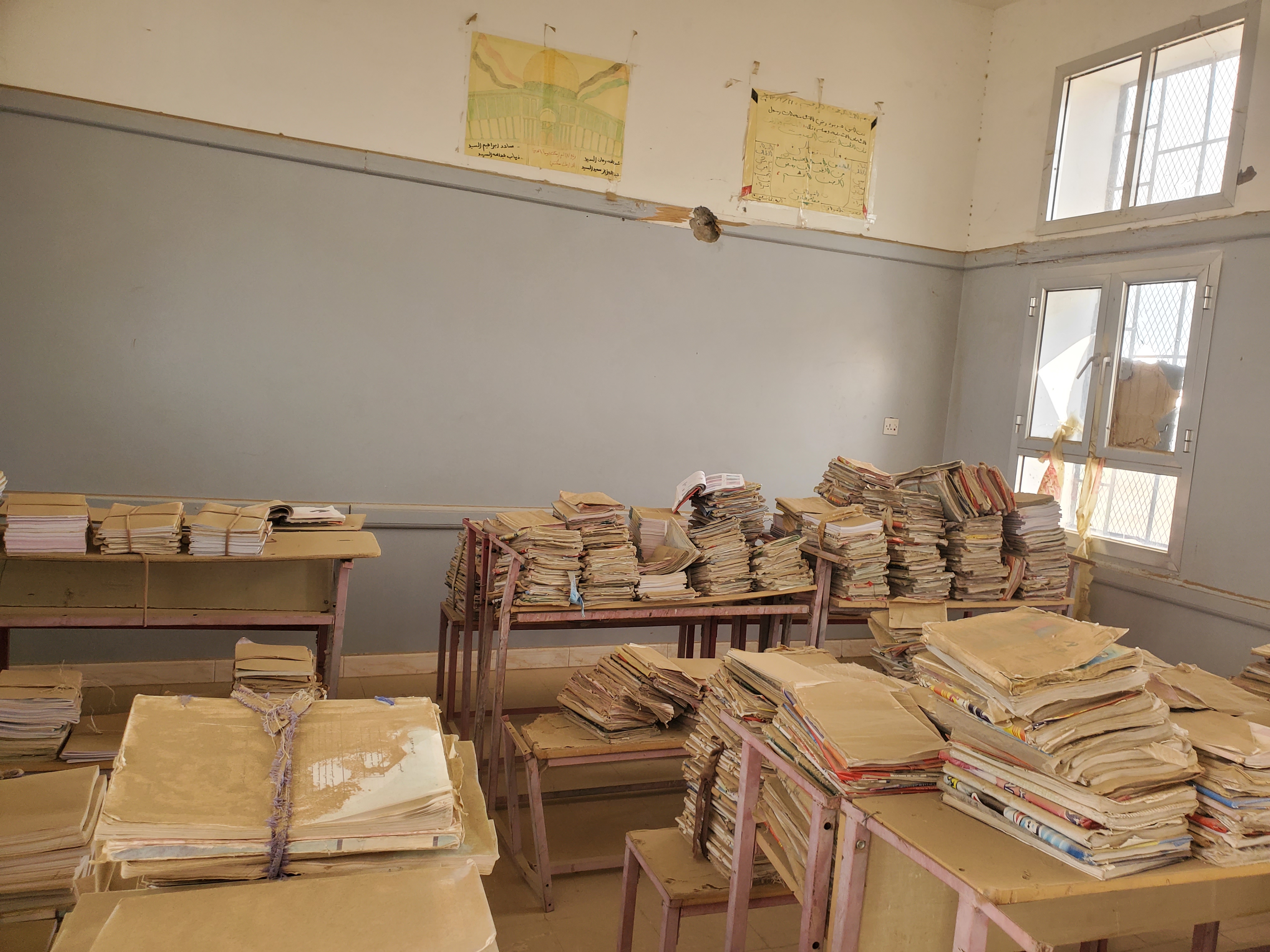
The Continuous Targeting of Education Undermines the Future of Children in Yemen

In a statement issued today to mark the International Day of Education, observed annually on January 24, Mwatana for Human Rights highlighted the devastating impact of Yemen's protracted armed conflict on education. Over the more than ten years of the conflict, a wide range of negative effects have emerged, with educational facilities suffering various violations. These include the failure of warring parties in Yemen to take measures to protect educational institutions from attacks of all kinds, the politicization of education, the occupation and misuse of schools and educational facilities, and other practices that have deprived millions of Yemeni children of their right to education.
Mwatana reported that from the start of the armed conflict in September 2014 to the end of 2024, it documented 1,496 violations against education and educational facilities committed by different parties to the conflict. These parties include the Ansar Allah (Houthi) group, the Saudi/UAE-led coalition, the internationally recognized government, the Southern Transitional Council, the Joint Forces, and terrorist organizations. Leading these violations were air and ground attacks, bombings, the occupation of schools, assaults on educational facilities, and the use of educational institutions for recruitment, mobilization, and other purposes. Mwatana emphasized that the documented cases represent only what it was able to verify, reflecting the extensive scale of violations inflicted on education in Yemen.
In its statement, Mwatana underscored that the catastrophic damage to the education system in Yemen could have been avoided had the warring parties taken the necessary measures to protect educational facilities and neutralize education from the conflict. It warned that the negative repercussions on education jeopardize the future of generations of Yemenis, extending beyond the current generation. This is due to the extensive damage to the education system and efforts to distort its objectives for narrow political and ideological purposes.
Customary and treaty-based international laws prohibit the targeting of education and educational facilities. Attacks on schools are classified among the six grave violations against children, as outlined in the United Nations Security Council Resolution on Children and Armed Conflict (1999), which condemns and identifies six severe violations that children suffer most acutely during wartime.
The right to education is a fundamental right guaranteed by various international laws, under all circumstances. The Universal Declaration of Human Rights states that "everyone has the right to education." It emphasizes that education should be free, at least at the elementary and basic levels, with elementary education being compulsory. Technical and vocational education should be generally available, and higher education should be accessible to all based on merit. Other international agreements and charters similarly affirm the right to education as a basic human right for every individual, without discrimination and in all circumstances.
Radhya Al-Mutawakel, Chairperson of Mwatana for Human Rights, stated:
"The deterioration and weakening of education is one of the tragic facets of armed conflicts, with effects extending well into the post-conflict period. Education in Yemen has been, and continues to be, subjected to various atrocities and violations, causing a significant collapse in the educational system. This has negatively impacted children’s ability to access education and the quality of the education available during the conflict."
Al-Mutawakel added:
"The weakening and deterioration of education threaten the rights of generations to proper development and preparation, impeding their ability to exercise their basic rights. Access to appropriate education serves as a foundation for realizing other rights and as a crucial guarantee for their fulfillment."
A report by Save the Children titled " Hanging in the Balance: Yemeni Children’s Struggle for Education" revealed that two out of every five children, or 4.5 million, are out of school. The organization's analysis also found that displaced children are twice as likely to drop out of school. While returning to their areas of origin could reduce the risk of dropping out by 20%, this option remains unattainable due to ongoing insecurity.
According to Mwatana's field study, "War of Ignorance," published in December 2020, the armed conflict has significantly impacted access to education in Yemen. The study found that 48.3% of students were forced to drop out due to their families’ dire circumstances, unsuitable learning environments, lack of parental interest in education, the long distances to schools, fear of attending school amidst the conflict, increased risks, and other reasons directly or indirectly related to the conflict.
The same study highlighted that child labor is a leading factor contributing to deprivation of education and high dropout rates, accounting for 44% of the causes. Additionally, poor living conditions and families’ inability to afford tuition fees and school requirements constituted 20% of the reasons identified in the study.
Mwatana for Human Rights called on all parties to the conflict to immediately cease violations against education and educational facilities, including direct targeting, occupation, misuse, politicization, and other abuses. The organization urged efforts to ensure children’s access to education across all regions, including taking effective steps to reintegrate school dropouts into the education system and providing the necessary resources to facilitate their return. Mwatana also called for the clearance of landmines and resolving issues related to civil documentation for displaced persons and other civilians who lost their papers during the conflict, which has hindered their ability to normally exercise their rights, including the right to education. Additionally, the organization called for the rehabilitation of damaged schools and related measures.
Mwatana also urged the international community, including the United Nations and influential states, to support and enhance peace efforts in Yemen. The organization called for the establishment of an international investigative mechanism with a criminal mandate to probe human rights violations in Yemen, including those against education and educational facilities, and to collect evidence to ensure accountability for those responsible. Such measures are essential to achieving a just and sustainable peace.